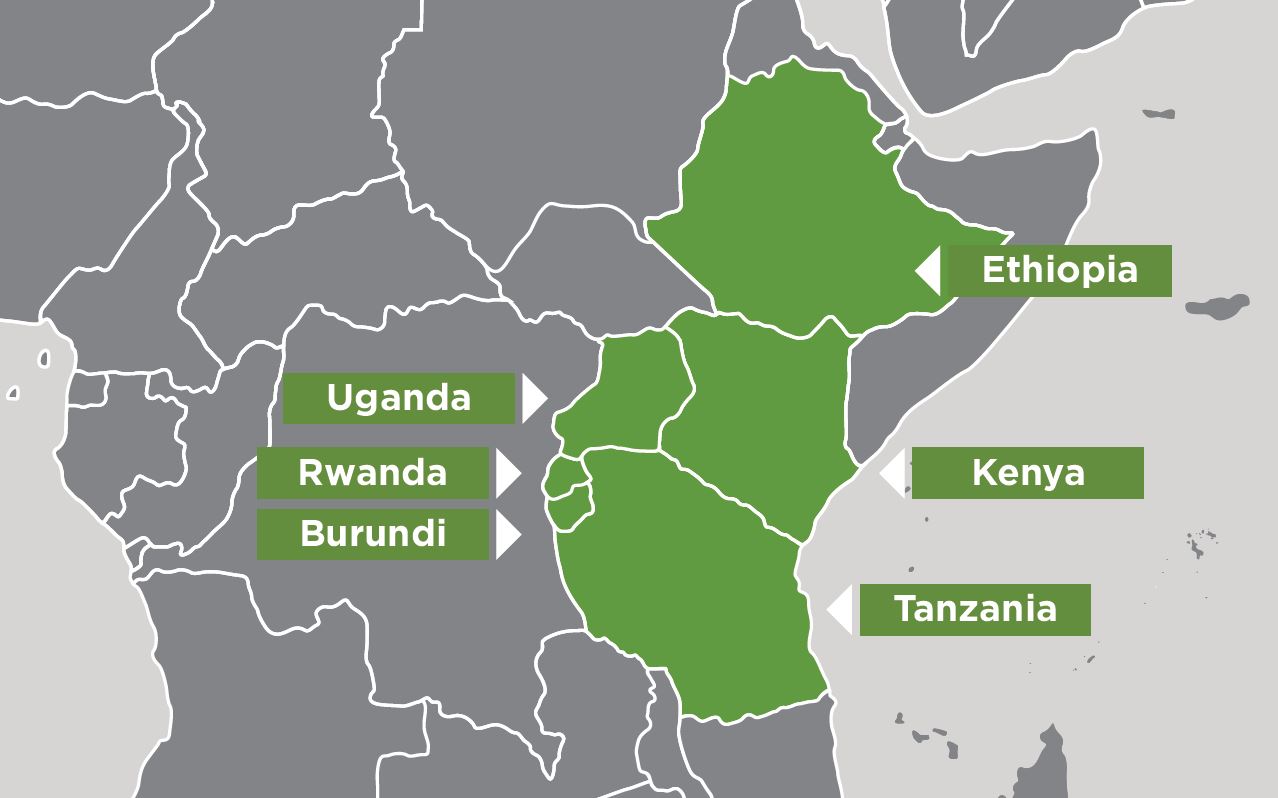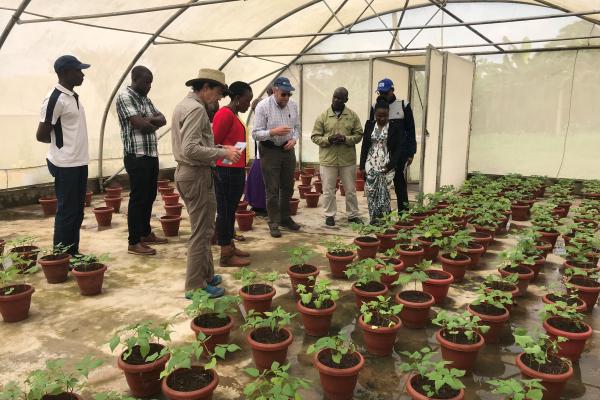Overview
This project aims to deliver new genotypes of common bean with 30% shorter cooking time, 15% higher iron and 10% higher zinc content than current varieties, and to train African plant breeders in a new rapid method of plant breeding based on optimal mating designs.
Long cooking times (between 1–3 hours) of the common bean is a disincentive to consumption since it demands large amounts of water, fuel and time. Moreover, firewood or charcoal is normally collected by women and children at great personal risk and cost to the environment and imposes a health risk through prolonged exposure to smoke during cooking.
The recent development of new breeding methods based on pedigree and genomic selection together with optimal contribution selection offers an opportunity to accelerate breeding of the common bean for rapid cooking time and higher iron and zinc content.
This project will undertake capacity building in the new breeding methodology in east Africa through gender-inclusive training programmes, and for new marketing approaches that ensure equitable access to new varieties developed in the project.
Outcomes
- Incorporate new breeding methods based on pedigree and genomic selection methods and optimal contributions selection into the CIAT/PABRA bean breeding programme to rapidly reduce cooking time in beans, improve micronutrients over five years, while improving seed protein, Bruchid resistance, disease resistance and agronomic traits.
- Share data across project partners through a common database system and to make use of data on yield, drought tolerance, Pythium root rot resistance scored in Kenya, Bruchid resistance scored in Ethiopia, and other traits from partners in future breeding decisions.
- Include smallholder women and men in selection of new varieties and ensure that appropriate gender-preferred value is placed on short cooking time, iron and zinc content in breeding and selection of new varieties.
- Integrate the breeding component into the PABRA Wider Impact Initiative and Bean Corridors approach, catalyse sustainable investments in the seed system and facilitate access to quality seed of improved bean varieties to East African farmers.
- Train African breeders in the new methodology of pedigree and genomic selection and optimal contributions selection in beans and in gender responsive plant breeding.
Summary of outcomes to date
2021–22
In its third year of operation, the project progressed in the following activities. We achieved the first genomic analysis of cross progeny seeds for seed size, water absorption during soaking, cooking time, iron and zinc. We found significant heritability and correlations of genomic estimated breeding values for these traits. An optimised crossing design was implemented to begin cycle 2 recurrent selection. Also in year 3, partner countries sowed their first observation trials of selected lines. These results bode well for achieving the overall project aim.
The project goals were adjusted for essential new activities under 2 Variations, comprising: additional genomic testing, additional training on using the database, and a feasibility study of near-infrared analysis for measurement of seed protein, oil and starch.
One essential new activity, agreed at the project Annual Meeting in September 2021, was an evaluation of laboratory procedures to improve repeatability and reliability of cooking time assessment. We discovered that cooking time was extended by soaking temperatures above 28 °C, which often occurs in the laboratory. Soaking at cool temperatures (5 °C) improved the repeatability of cooking time. A new app (RapidCook App) was developed to reduce errors in data handling in the laboratory. This study will improve heritability and accuracy of genomic breeding values in the breeding population.
Partner country scientists were involved in several internet training sessions which sometimes were hampered by poor internet connectivity. Training on uploading and downloading data in the Breeding Management System database was achieved. The next annual project meeting in February 2023 will be face-to-face for the first time since December 2019, and involve hands-on training sessions.






